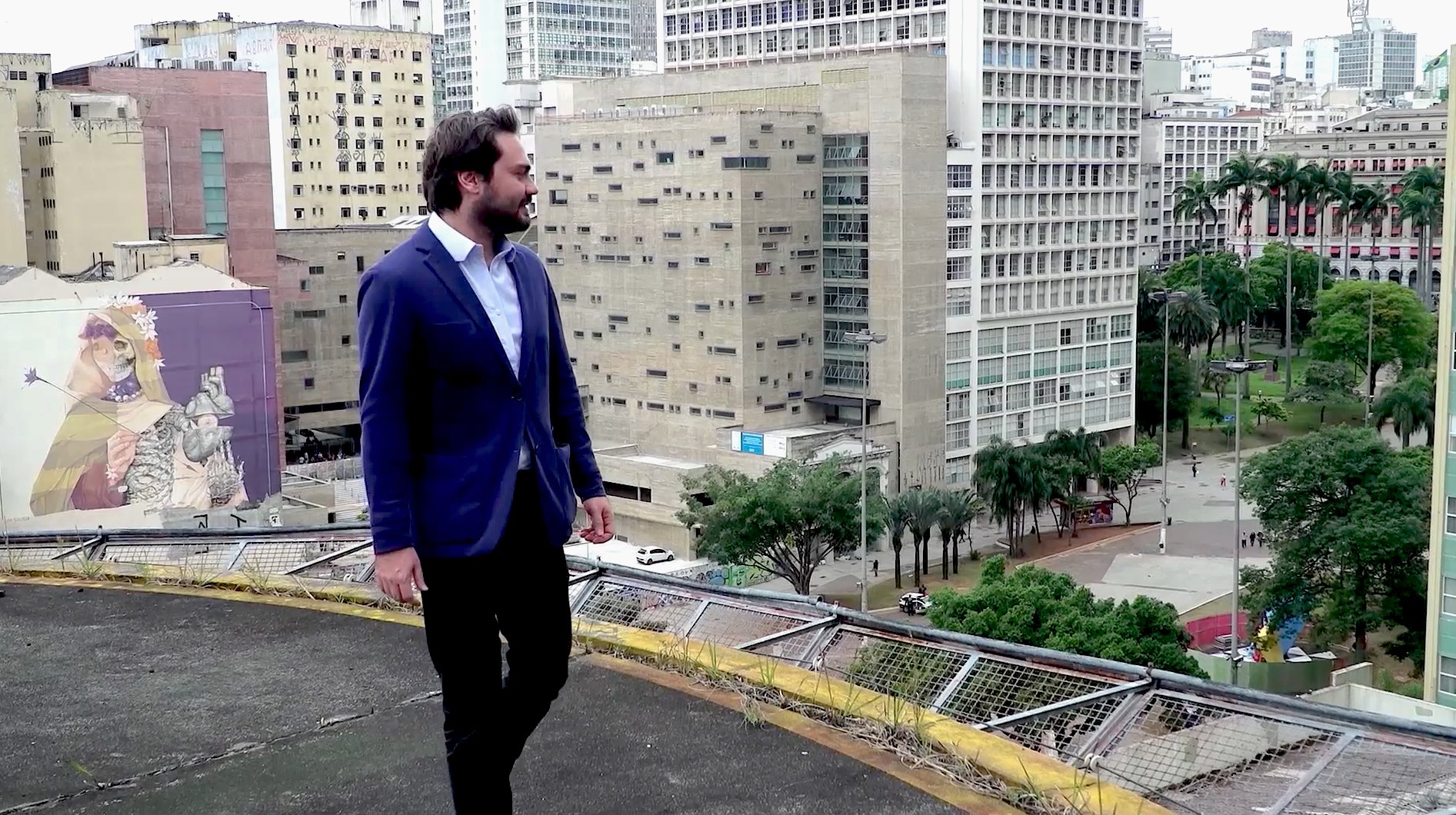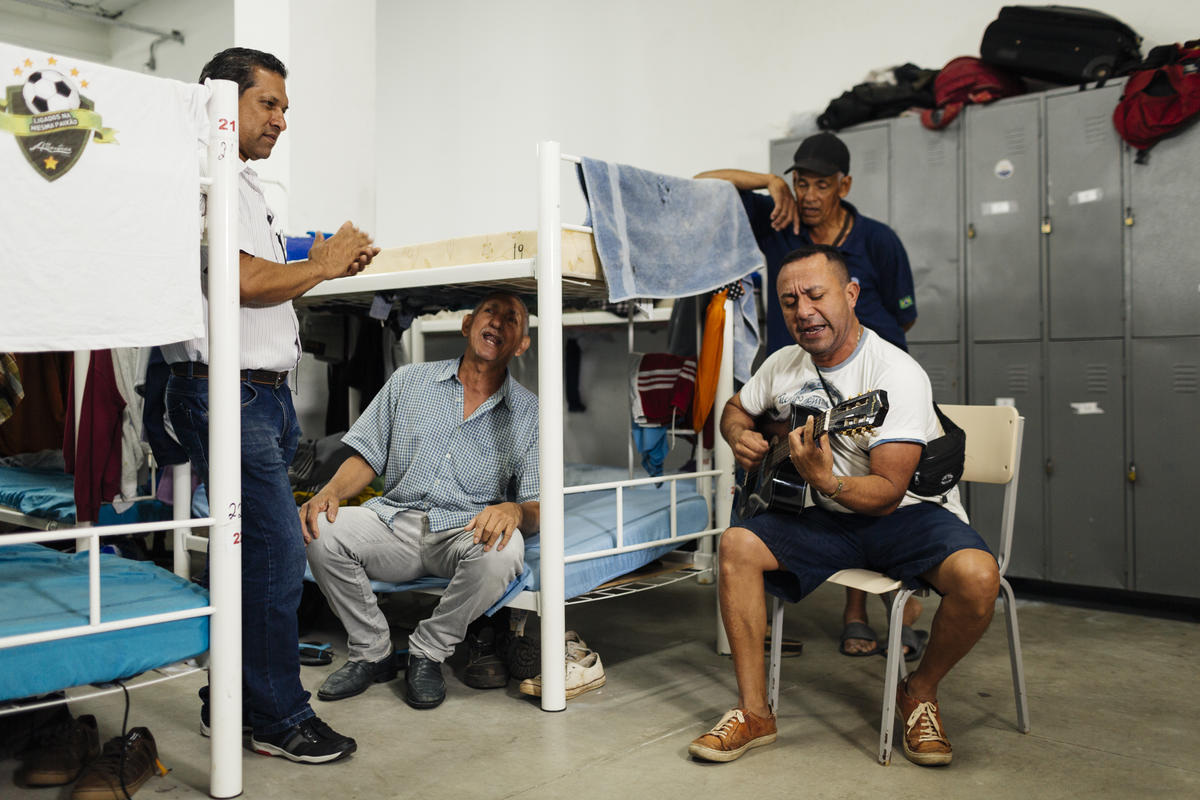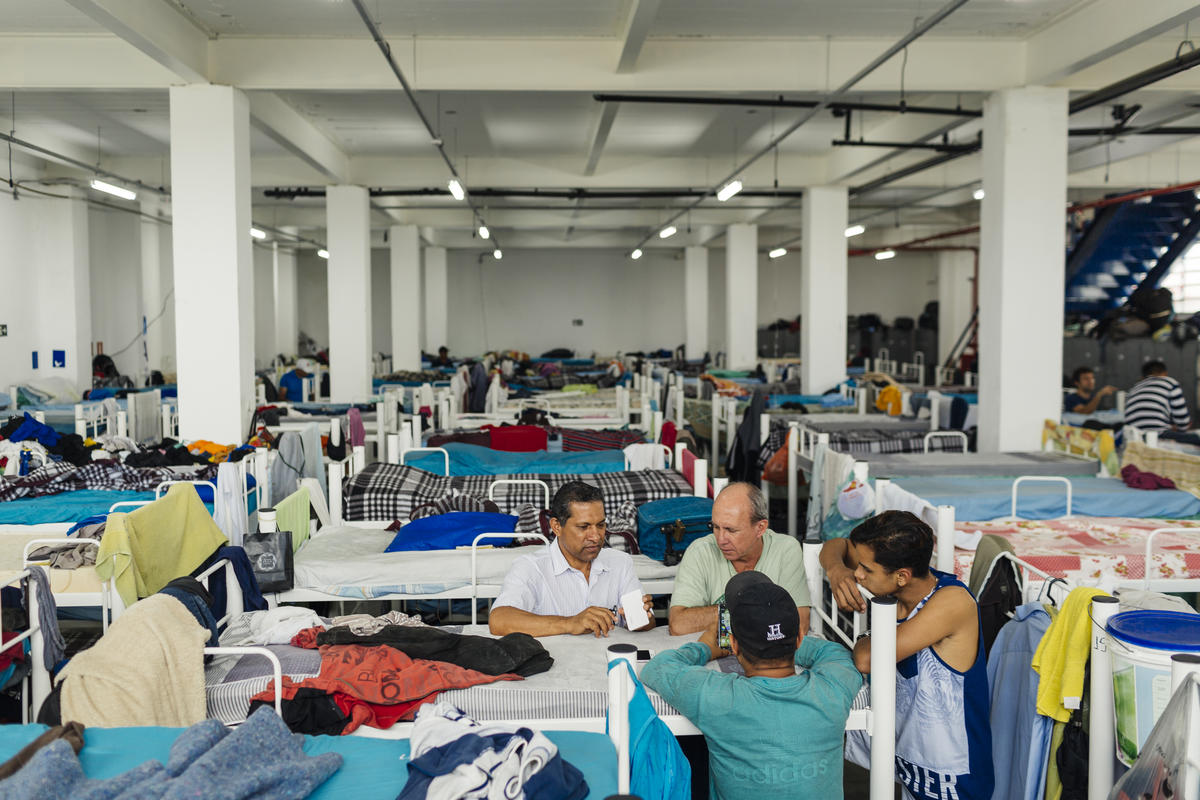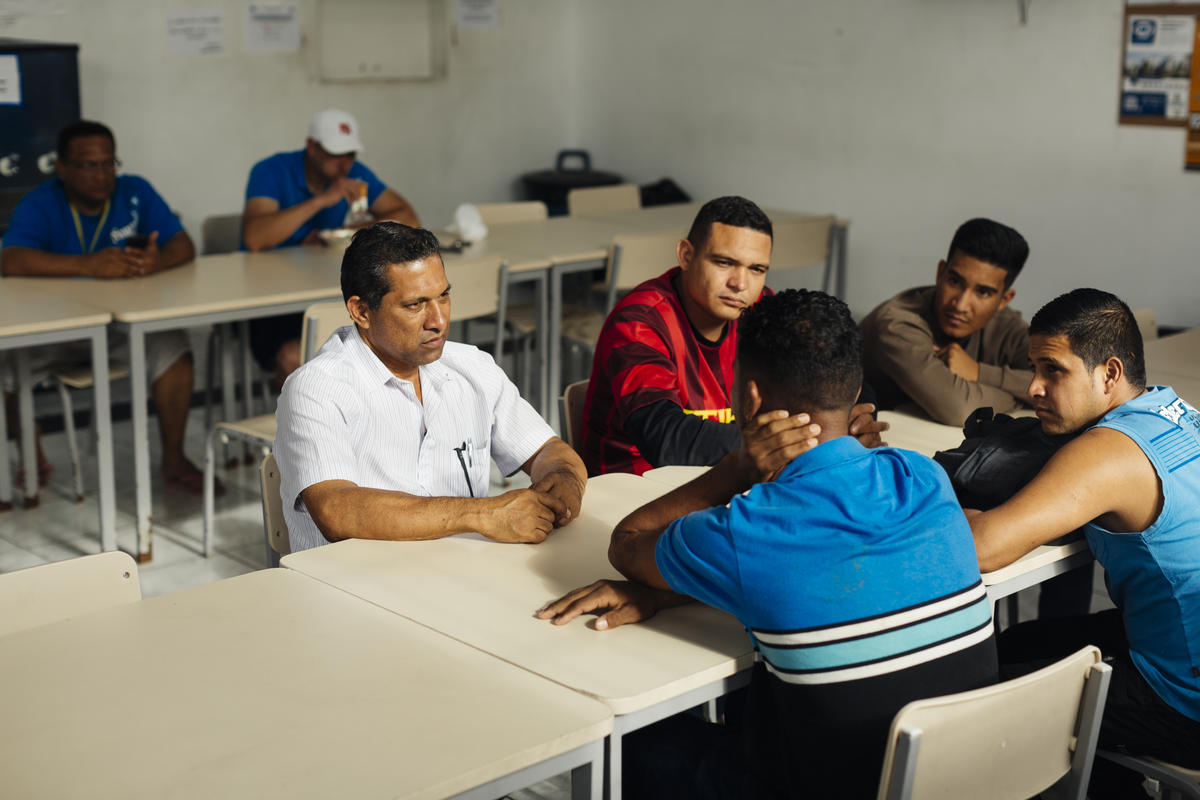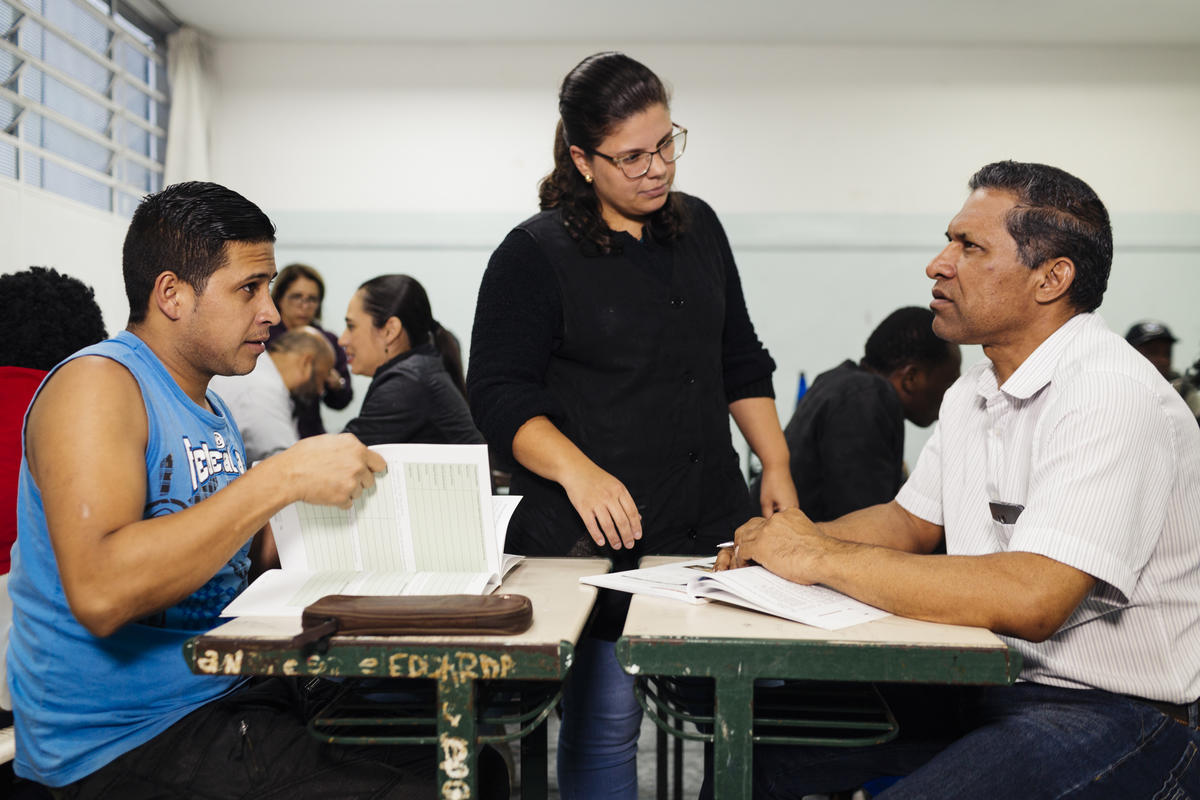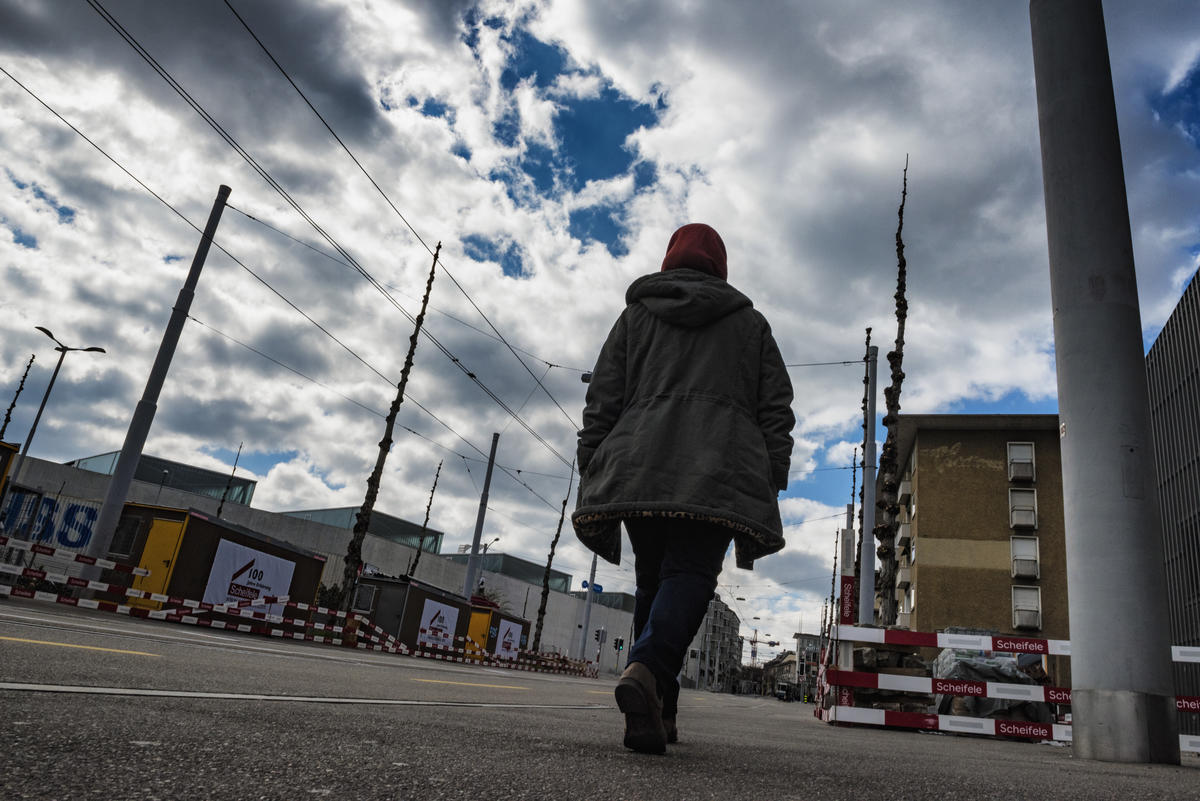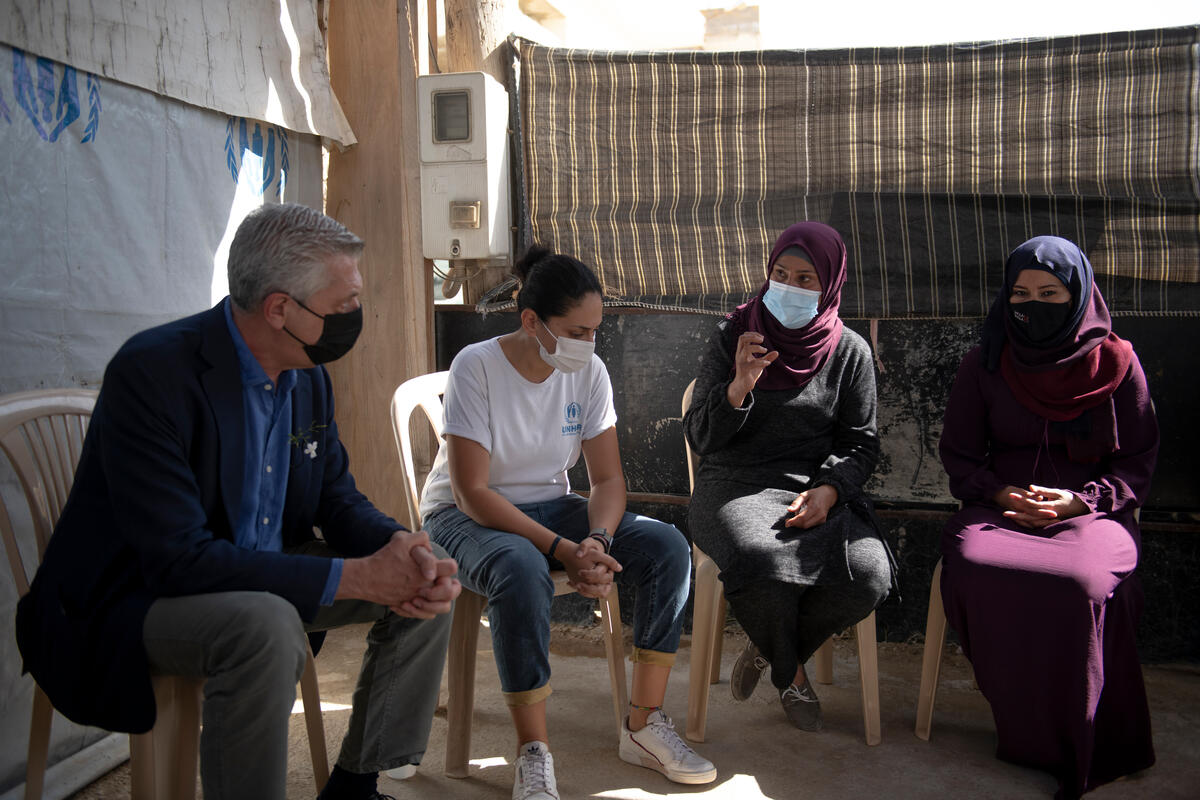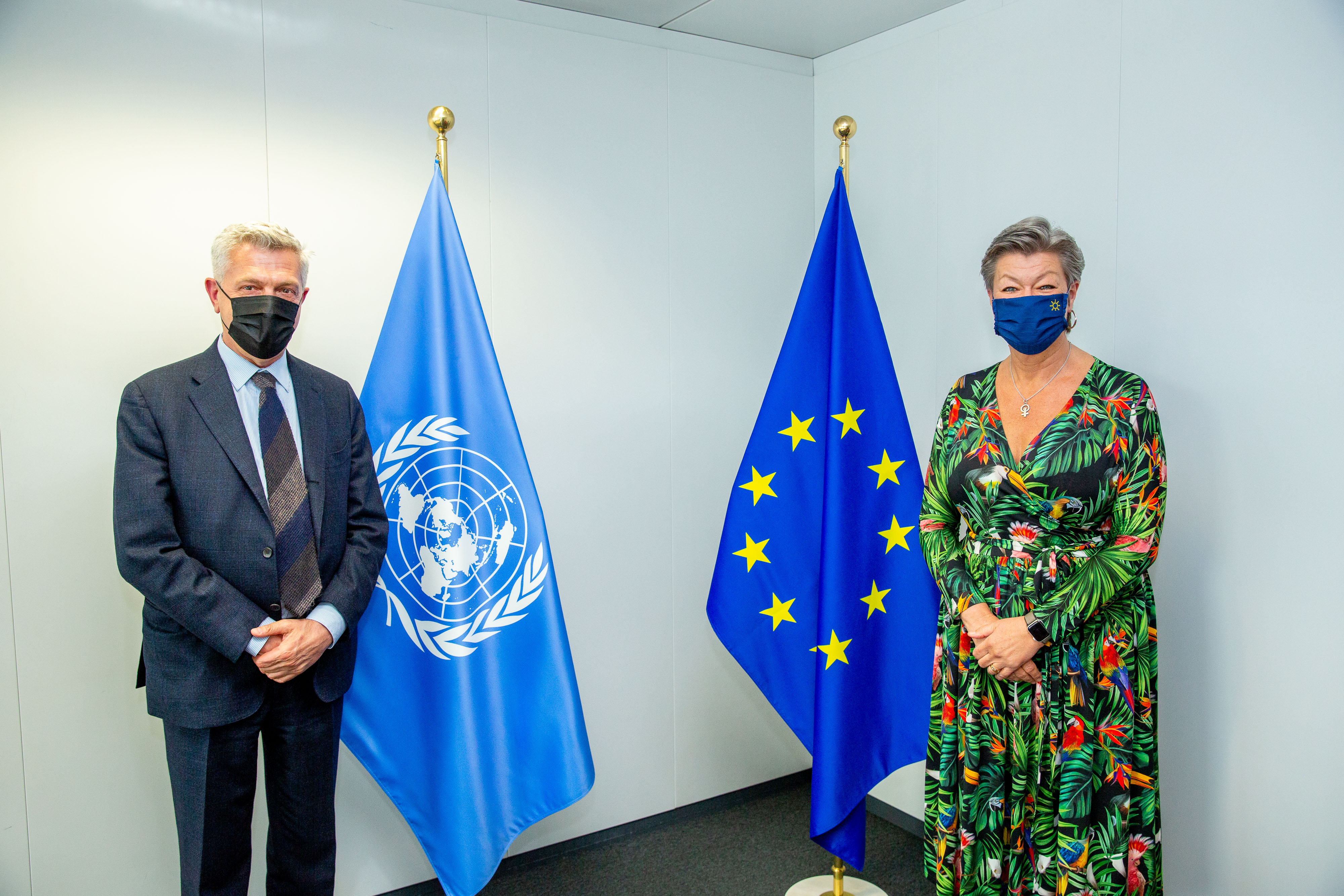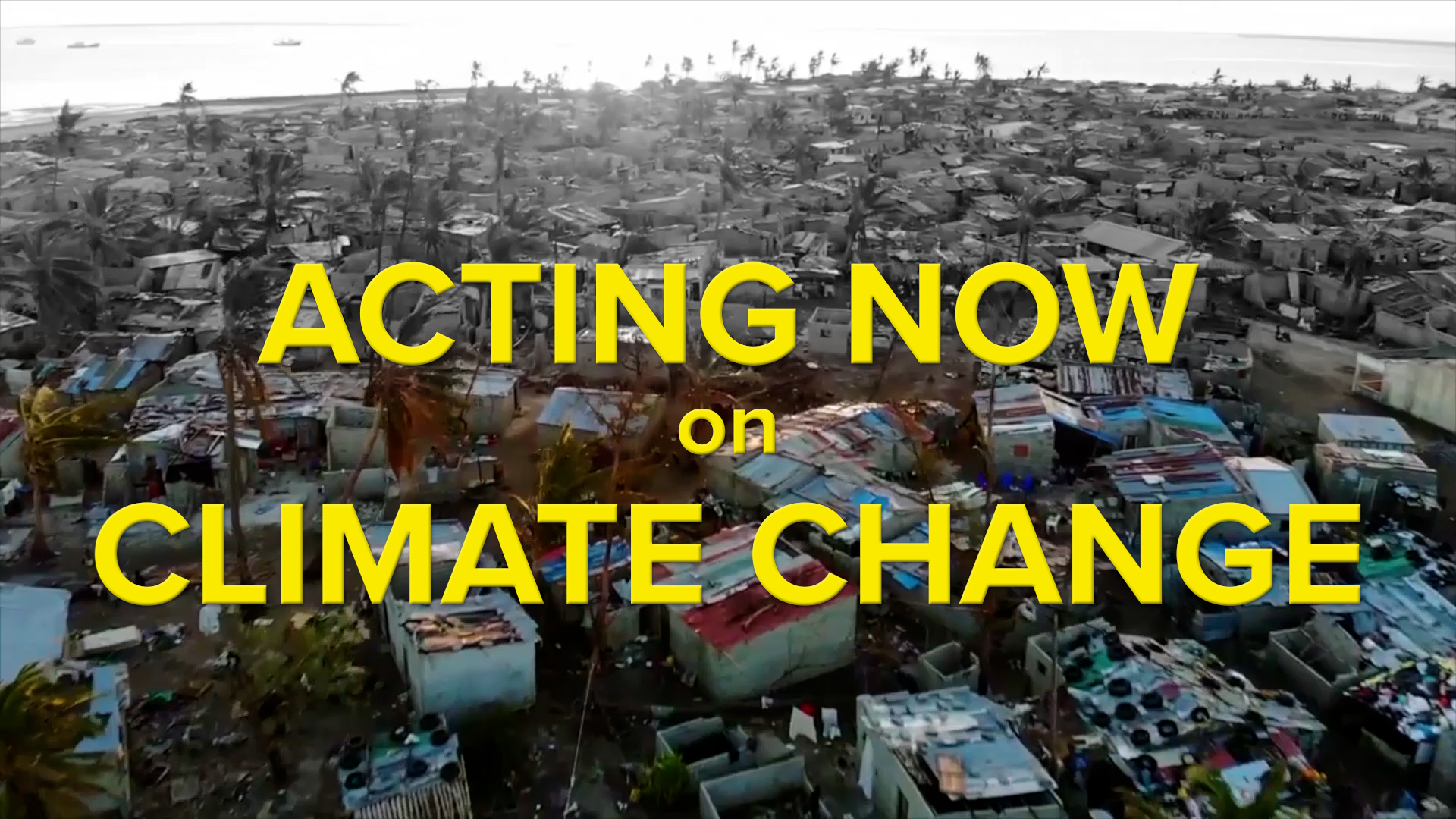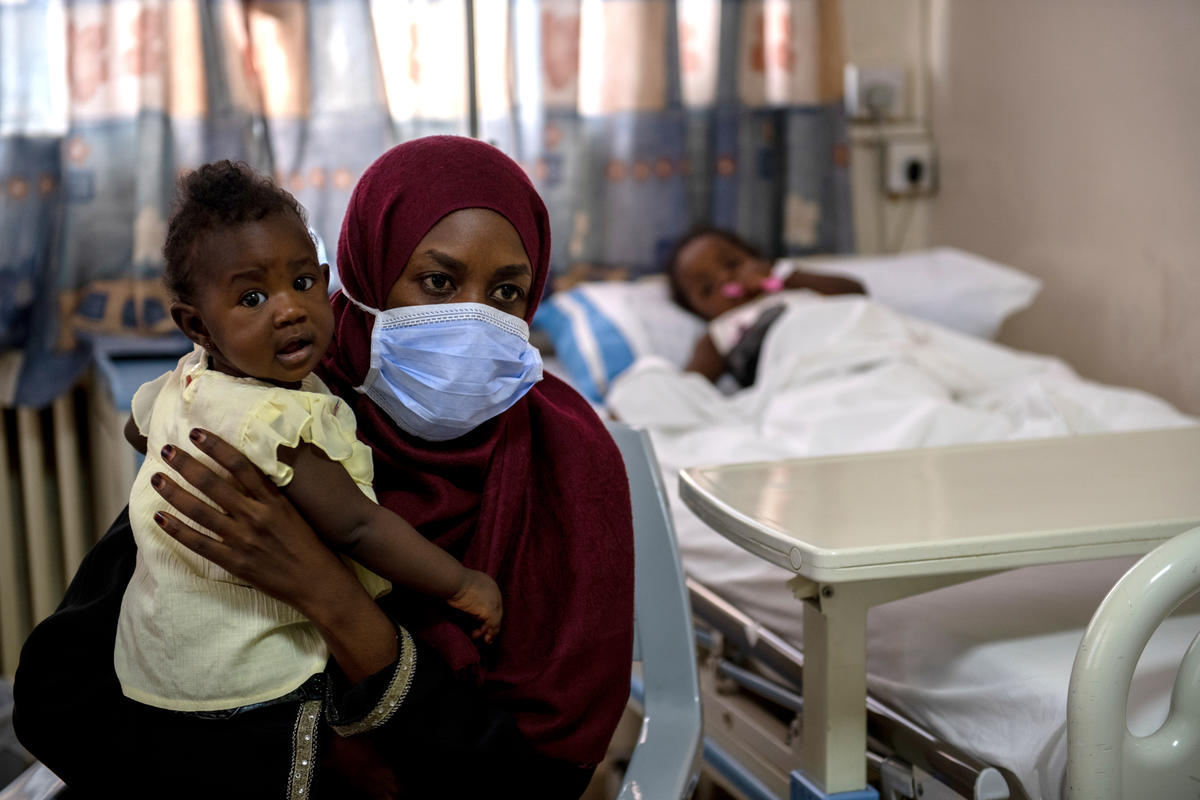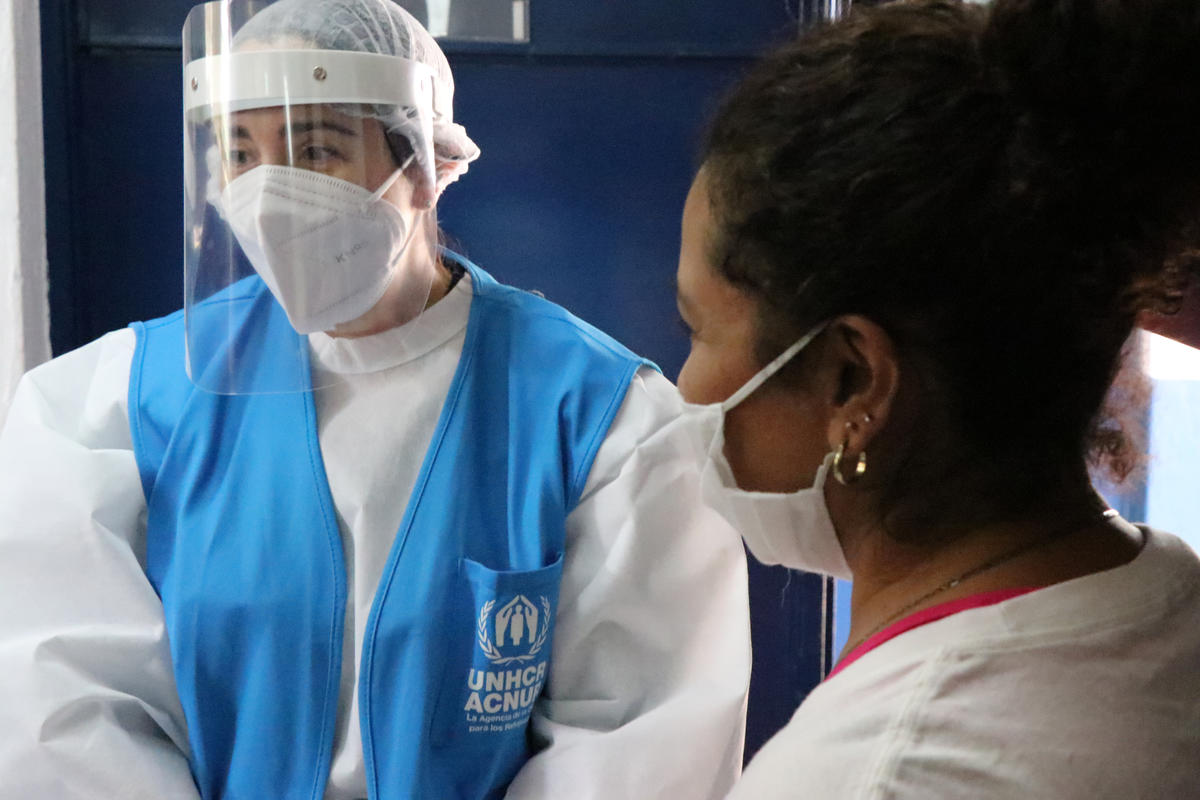São Paulo helps refugees find their feet in Brazil
Johnny José Gonzalez wheels the dolly across the warehouse floor at Doxs, a logistics company just outside of São Paulo in the city of Guarulhos. He scoops up a wooden pallet lined with cardboard boxes filled with light bulbs, pumping the dolly’s handle up and down to lift the merchandise just enough so that he can secure it to the pallet with a large roll of plastic before it’s loaded onto one of the company’s trucks.
The 50-year-old Venezuelan, who used to own a construction company, has been working as a warehouse assistant for five months, his first job since arriving in Brazil eight months ago with his son and son-in-law. The three men came from Cumaná by bus before making their way to Boa Vista, where most Venezuelans seeking refuge in Brazil go in search of shelter, food and work.
"Venezuela was falling apart,” he explains. “There was no work, no food, no medication. I had to sell everything I had — my home, my car — to be able to get to Brazil to take care of my family. I had no other choice."
The stream of refugees and migrants crossing from Venezuela to Brazil has increased exponentially over the last five years, with almost 200,000 arriving since the start of 2017. Of these, more than 100,000 have since moved on, leaving the current total in the country at some 98,000 with an average of 500 more arriving each day.
Shelters in Pacaraima and Boa Vista filled quickly during the influx, prompting the federal government to search for new solutions that would allow more Venezuelans to be helped as they crossed the border, and give those who had already arrived the opportunity to restart their lives in cities across Brazil.
São Paulo is at the forefront of this initiative, which has already helped 3,184 Venezuelans relocate to 28 Brazilian cities. Well-known for its diversity after decades of welcoming refugees and immigrants, the megacity is now home to 532 Venezuelans who arrived by way of the municipal government’s partnership with its federal counterpart and UNHCR, the UN Refugee Agency.
"Both the companies and the refugees have taken this opportunity to grow and develop."
When Gonzalez first arrived in São Paulo, he was given a bed at a shelter in the São Mateus neighbourhood, where the municipal government had prepared to receive just over 200 Venezuelan men. Now, the shelter is home to 164, thanks to city programmes designed to help the new arrivals regain their independence through language classes and work, giving them what they need to move into their own homes and make room for others who want to start over in São Paulo.
Gonzalez was hired by Doxs after signing up for the Trabalho Novo, or New Job, programme, which has already helped around 100 Venezuelans find work in São Paulo. He is one of 74 who have been able to leave the shelter and rent their own apartment.
“It shows that the best way to help somebody and to support somebody in a refugee situation is by giving them jobs so they can develop their own autonomy,” says Filipe Sabará, São Paulo’s Secretary of Social Development and Assistance, which runs the Trabalho Novo programme. “And we’ve had very good feedback from companies that have hired refugees from Venezuela. Both the companies and the refugees have taken this opportunity to grow and develop.”
São Paulo is not alone in its efforts to help the world’s 25.4 million refugees, around 60 per cent of whom live out of camps and in cities and urban areas across the Americas, Europe, the Middle East, Africa and Asia.
A growing global network of cities are opting to embrace refugees and the opportunities they bring. From Vienna to Erbil, these Cities of Light are giving refugees the opportunity to apply their talents and become part of the social fabric.
Mayors, local authorities, social enterprises and citizens groups are on the frontlines of the global refugee response, fostering social cohesion, and protecting and assisting the forcibly displaced in their midst.
On 18 and 19 December, UN High Commissioner for Refugees Filippo Grandi will host the eleventh High Commissioner’s Dialogue event in Geneva, which this year focusses on the role of cities in protecting the urban displaced.
Among the barriers facing newly arrived refugees in São Paulo is language, which the city is also helping them to overcome. Portas Abertas, or Open Doors, is a programme that offers Portuguese language classes to newly arrived refugees and migrants of all nationalities.
For Eyad Mohamed Dabour, a Palestinian refugee and computer engineer who fled Libya five years ago with his wife and children, these classes have allowed him to feel like part of the community where he lives and have given him the skills he needed to open a landscaping business.
"Without these classes, I wouln't have my business."
“The classes provided by the city are the best ones I’ve taken,” says Dabour, who worked as an IT teacher for 18 years. “They’re taught by real, qualified teachers and the classes aren’t too big. Now I can talk to my employees, my customers. Without these classes, I wouldn’t have my business.”
A civil engineer, Gonzalez is more than qualified to work in the company’s warehouse. He hopes to be able to grow within Doxs, something the company prides itself on helping all of its employees do, particularly those who come to it as refugees. It also employs two other Venezuelans and a Haitian, all hired through the Trabalho Novo programme.
But for Gonzalez, Doxs is not just a place to work. While his salary sustains him in Brazil and allows him to send money back to his wife, children and grandchildren in Venezuela -- who he hopes to bring to São Paulo in the first two months of the new year -- it has also helped him become part of a community.
When he first started his job, it took Gonzalez three hours to get from the shelter in São Mateus to work in Guarulhos. The trip was taxing, leaving him exhausted by the time he was set to start his shift at 8 a.m. But his colleagues had a solution.
One of them knew of an apartment available for rent nearby. Gonzalez couldn’t afford it on his own, so he splits the rent with José Alberto Sucre Bello, another Venezuelan working at Doxs, and his son-in-law, who works in a hospital kitchen. His commute is now just a 20-minute walk.
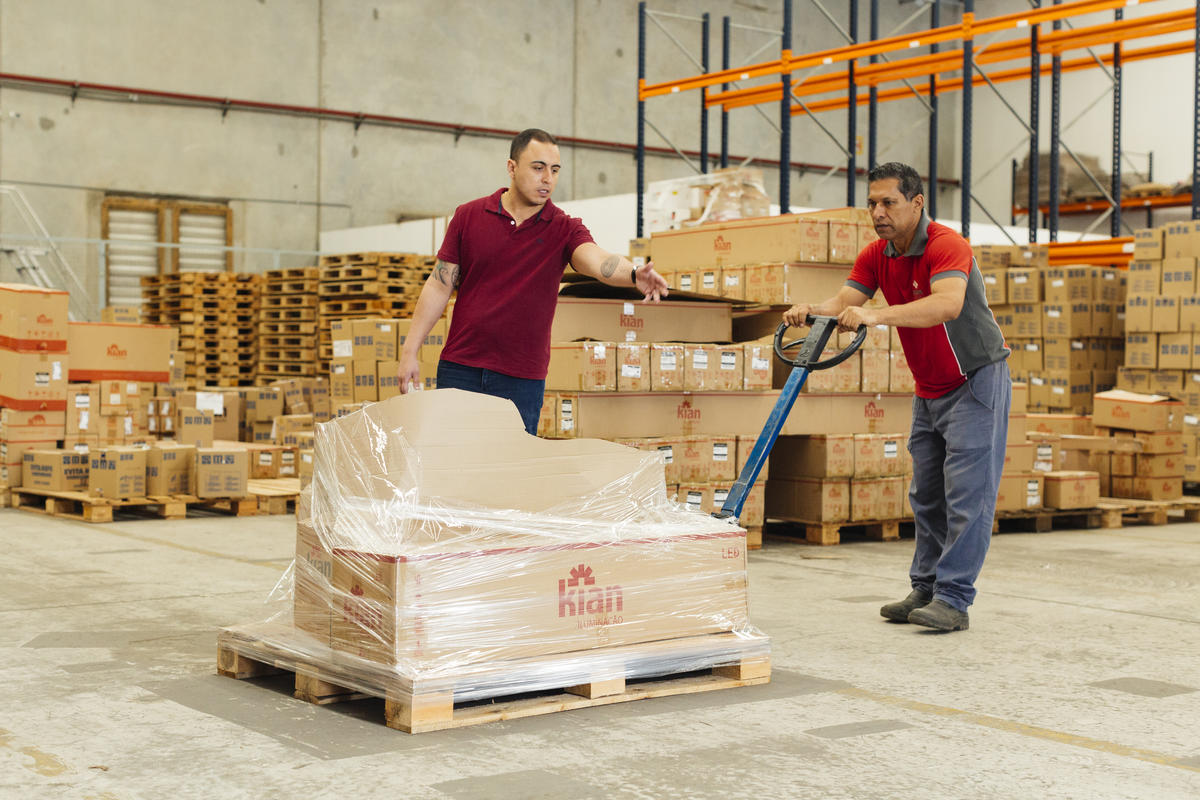
His colleagues didn’t stop there. They got together to help Gonzalez and Bello furnish their new home, each one donating something they would need: from a fridge and a stove, to mattresses and a table and chairs. New friends have helped out too – the shoes Gonzalez is wearing were given to him by a neighbour.
"I was given a family here in Brazil."
“I didn’t expect to be so blessed, to receive so much affection and support,” Gonzalez says. “I was given a family here in Brazil.”
But Gonzalez and Bello’s Brazilian friends and colleagues insist they have gained much more from working with the pair than what they have given.
“I think we as a company have learned more from them than they have from us,” says Everton Freitas, who works closely with Gonzalez and Bello as operations manager at Doxs.
“We learn something new from them every day. They teach us about their culture, about being proactive. They share a lot with us and we’ve become better because of them.”

